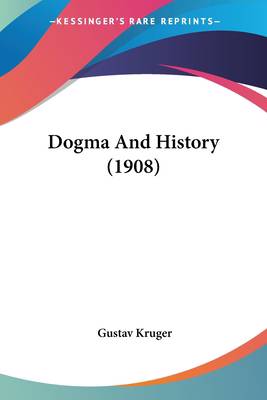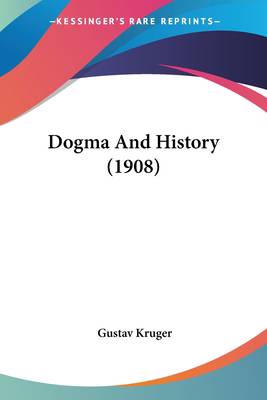
- Afhalen na 1 uur in een winkel met voorraad
- Gratis thuislevering in België vanaf € 30
- Ruim aanbod met 7 miljoen producten
- Afhalen na 1 uur in een winkel met voorraad
- Gratis thuislevering in België vanaf € 30
- Ruim aanbod met 7 miljoen producten
Zoeken
Omschrijving
Dogma and History is a book written by Gustav Kruger in 1908. The book explores the relationship between dogma and history in Christianity. It argues that dogma is not simply a set of beliefs that are passed down from generation to generation, but rather a product of historical development. Kruger examines the role that historical context plays in shaping Christian dogma, and how changes in historical circumstances can lead to shifts in theological thinking. He also explores the ways in which dogma can shape history, both through the actions of individual believers and through the influence of religious institutions. Ultimately, Kruger argues that a deeper understanding of the relationship between dogma and history is essential for Christians seeking to navigate the complexities of modern life.This scarce antiquarian book is a facsimile reprint of the old original and may contain some imperfections such as library marks and notations. Because we believe this work is culturally important, we have made it available as part of our commitment for protecting, preserving, and promoting the world's literature in affordable, high quality, modern editions, that are true to their original work.
Specificaties
Betrokkenen
- Auteur(s):
- Uitgeverij:
Inhoud
- Aantal bladzijden:
- 86
- Taal:
- Engels
Eigenschappen
- Productcode (EAN):
- 9781120276940
- Verschijningsdatum:
- 15/10/2009
- Uitvoering:
- Paperback
- Formaat:
- Trade paperback (VS)
- Afmetingen:
- 152 mm x 229 mm
- Gewicht:
- 127 g

Alleen bij Standaard Boekhandel
+ 56 punten op je klantenkaart van Standaard Boekhandel
Beoordelingen
We publiceren alleen reviews die voldoen aan de voorwaarden voor reviews. Bekijk onze voorwaarden voor reviews.











